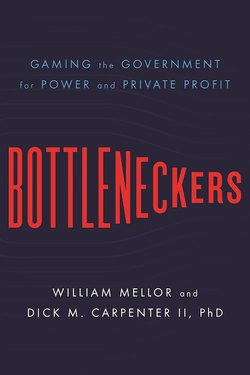Bottleneckers

Реклама. ООО «ЛитРес», ИНН: 7719571260.
Оглавление
William Mellor. Bottleneckers
Отрывок из книги
We dedicate this book to Institute for Justice clients who have courageously and successfully stood up to bottleneckers and, in doing so, paved the way for countless others to pursue an honest living.
Introduction
.....
The 2013 law made it illegal for producers to charge money for territorial rights; instead forcing them to give these valuable rights to distributors for free.105 Even worse, even though distributors would be able to acquire those rights at no cost, they could sell them to other distributors for a profit. In a state with a booming craft-brew industry, the economic advantage to distributors was therefore considerable. The Texas bottleneckers worked hard to achieve this provision, partnering with state senator John Carona, who introduced the language at the end of a long and hectic session.106 The distributors testified in favor of the provision in legislative hearings and relied on already-cultivated relationships with legislators to overcome strong resistance.107 Like their bottlenecker brethren nationally and in other states, Texas distributors have invested heavily in state politics. From 2009 to 2012, distributors in the Lone Star State gave $7 million to legislators, dwarfing the $17,924 given to them by craft brewers. Carona alone received $135,000 from alcohol distributors during that period, the second-highest payment received by any Texas lawmaker.108
Meanwhile, in the same year, more than 1,700 miles away, some New York distributors were on the verge of realizing their own beneficial scheme, even sacrificing some fellow bottleneckers in order to strengthen their position. In February 2013, New York legislators introduced similar bills in the Assembly109 and Senate110 to require that all alcoholic beverages sold by distributors in New York remain “at rest” in warehouses in the state for twenty-four hours prior to delivery to retailers. The target of the bill was at least 150 New York distributors that had warehouses in New Jersey, where space was vastly cheaper than in New York, and that delivered directly to New York City restaurants and retailers.111 The main beneficiaries of the legislation were New York’s two largest distributors, Southern Wine and Spirits and Empire Merchants. Because the law would have required those distributors with warehouses in New Jersey to spend enormous sums of money to rent or build climate-controlled warehouses in property located among some of the most expensive real estate in the world, as many as one hundred of these distributors might have been forced to close.112
.....